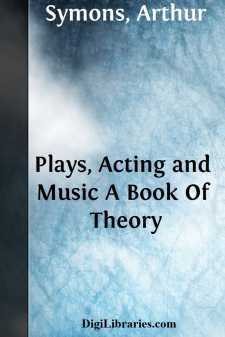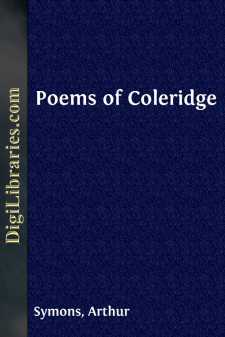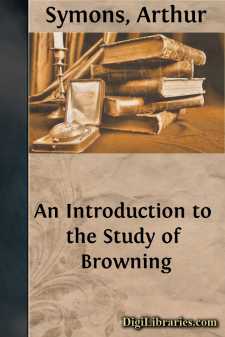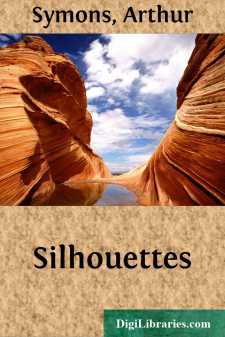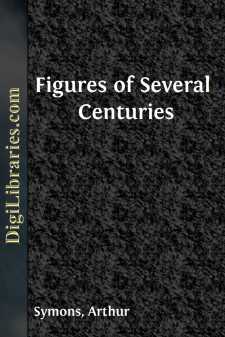Categories
- Antiques & Collectibles 13
- Architecture 36
- Art 48
- Bibles 22
- Biography & Autobiography 815
- Body, Mind & Spirit 144
- Business & Economics 28
- Children's Books 18
- Children's Fiction 14
- Computers 4
- Cooking 94
- Crafts & Hobbies 4
- Drama 346
- Education 58
- Family & Relationships 59
- Fiction 11833
- Games 19
- Gardening 17
- Health & Fitness 34
- History 1378
- House & Home 1
- Humor 147
- Juvenile Fiction 1873
- Juvenile Nonfiction 202
- Language Arts & Disciplines 89
- Law 16
- Literary Collections 686
- Literary Criticism 179
- Mathematics 13
- Medical 41
- Music 40
- Nature 179
- Non-Classifiable 1768
- Performing Arts 7
- Periodicals 1453
- Philosophy 65
- Photography 2
- Poetry 896
- Political Science 203
- Psychology 44
- Reference 154
- Religion 515
- Science 126
- Self-Help 85
- Social Science 82
- Sports & Recreation 34
- Study Aids 3
- Technology & Engineering 59
- Transportation 23
- Travel 463
- True Crime 29
Arthur Symons
Arthur Symons (1865–1945) was a British poet, critic, and editor who played a pivotal role in introducing Symbolist and Decadent literature to English audiences. His influential work, "The Symbolist Movement in Literature" (1899), helped shape the literary modernism of the early 20th century by highlighting the works of French Symbolists like Baudelaire and Verlaine. Symons was also a poet himself, with collections such as "Silhouettes" (1892) and "London Nights" (1895) reflecting his deep engagement with both urban life and the emotional intensity characteristic of the Decadent movement. His career, however, was impacted by a mental breakdown in 1908, after which he largely withdrew from public life.
Author's Books:
Sort by:
by:
Arthur Symons
INTRODUCTION[2][3] After seeing a ballet, a farce, and the fragment of an opera performed by the marionettes at the Costanzi Theatre in Rome, I am inclined to ask myself why we require the intervention of any less perfect medium between the meaning of a piece, as the author conceived it, and that other meaning which it derives from our reception of it. The living actor, even when he condescends to...
more...
by:
Arthur Symons
In one of Rossetti's invaluable notes on poetry, he tells us that to him "the leading point about Coleridge's work is its human love." We may remember Coleridge's own words: "To be beloved is all I need, And whom I love, I love indeed." Yet love, though it is the word which he uses of himself, is not really what he himself meant when using it, but rather an...
more...
by:
Arthur Symons
A BIBLIOGRAPHY OF ROBERT BROWNING The following list of the published writings of Robert Browning, in the order of their publication, has been compiled mainly from Dr. Furnivall's very complete and serviceable Browning Bibliography, contained in the first part of the Browning Society's Papers (pp. 21-71). Volumes of "Selections" are not noticed in this list: there have been many in...
more...
by:
Arthur Symons
BEING A WORD ON BEHALF OF PATCHOULI. AN ingenuous reviewer once described some verses of mine as "unwholesome," because, he said, they had "a faint smell of Patchouli about them." I am a little sorry he chose Patchouli, for that is not a particularly favourite scent with me. If he had only chosen Peau d'Espagne, which has a subtle meaning, or Lily of the Valley, with which I have...
more...
by:
Arthur Symons
SAINT AUGUSTINE The Confessions of St. Augustine are the first autobiography, and they have this to distinguish them from all other autobiographies, that they are addressed directly to God. Rousseau's unburdening of himself is the last, most effectual manifestation of that nervous, defiant consciousness of other people which haunted him all his life. He felt that all the men and women whom he...
more...


